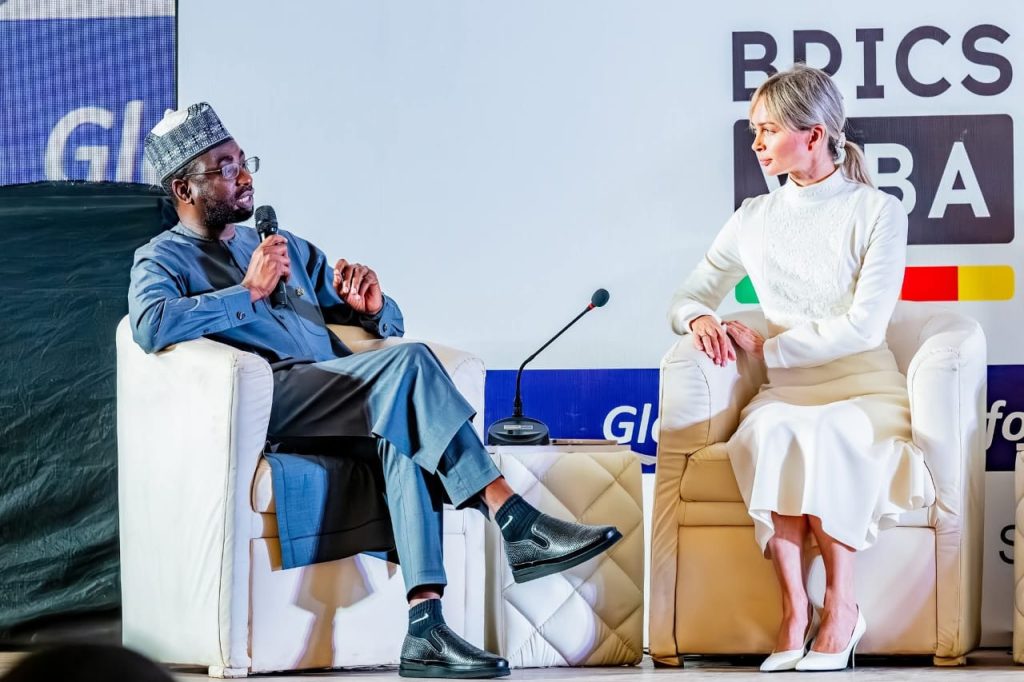Nigeria Building Future of AI, Not Waiting to Be Carried Along — NITDA DG
By Alabidun Shuaib AbdulRahman
The Director-General of the National Information Technology Development Agency (NITDA), Kashifu Inuwa, CCIE, has reaffirmed Nigeria’s determination to become a key player in the global Artificial Intelligence (AI) ecosystem, saying the nation is taking deliberate steps to shape the future rather than wait to be carried along.
Inuwa stated this during a plenary session themed “Technology, Migration and Trade Representation” at the Stakeholders’ Interactive Engagement with the BRICS Women’s Business Alliance, held at the State House, Abuja.
He said Nigeria’s digital ambitions are firmly anchored in President Bola Tinubu’s Renewed Hope Agenda, which emphasises economic diversification, inclusivity, and the acceleration of industrialisation, digitalisation, manufacturing, and innovation.
According to him, this vision has guided the Ministry of Communications, Innovation and Digital Economy’s Strategic Roadmap and continues to drive NITDA’s initiatives to position Nigeria as a digital powerhouse in Africa.
READ ALSO: NITDA, ICPC Set Up Joint Task Force to Curb Corruption in Government IT Projects
Unveiling the country’s National Artificial Intelligence Strategy, the NITDA boss said Nigeria’s journey towards AI adoption is built on three key pillars — foundational digital infrastructure, inclusive innovation, and strong governance.
He listed some of the major milestones recorded so far, including the launch of Nigeria’s National Multilingual Large Language Model in New York, designed to ensure that African languages and culture are represented in global AI systems.
“For us, it is important that our languages, culture, and people are represented in the AI of the future. That’s why we built Nigeria’s own multilingual large language model — to make sure technology reflects our identity and diversity,” Inuwa said.
He further explained that NITDA is nurturing a vibrant innovation ecosystem through the implementation of the Nigerian Startup Act, which provides a legal and institutional framework to support entrepreneurship and inclusivity.
“Innovation does not happen in isolation. You need an ecosystem that connects government, innovators, investors, and partners. Through our startup policies, we are deliberately giving women founders the space to thrive,” he added.
On sectoral transformation, Inuwa disclosed that AI is being deployed across key sectors such as healthcare, agriculture, education, and manufacturing to boost efficiency and productivity.
“AI will not replace humans; it will enhance human capacity. Imagine doctors diagnosing faster, farmers predicting yields better, and manufacturers cutting inefficiencies — that’s the kind of leap Nigeria is preparing for,” he said.
Inuwa, however, cautioned that technological development must be inclusive to avoid marginalising vulnerable groups.
“If you are digitally invisible, AI will not consider you in its decision-making. That’s why inclusivity is non-negotiable. In all our programmes, we insist on at least 40 per cent women representation,” he noted.
He also highlighted the need for robust governance and regulation, adding that Nigeria is co-creating its AI governance framework with local innovators and global partners to ensure responsible leadership in the emerging digital economy.
“We are working hand in hand with the ecosystem to create policies that safeguard innovation while protecting citizens. This is how Nigeria will lead responsibly,” he said.
Inuwa noted that Nigeria’s AI ambition is about much more than technology — it is about people, prosperity, and positioning the country as a global leader in innovation.

